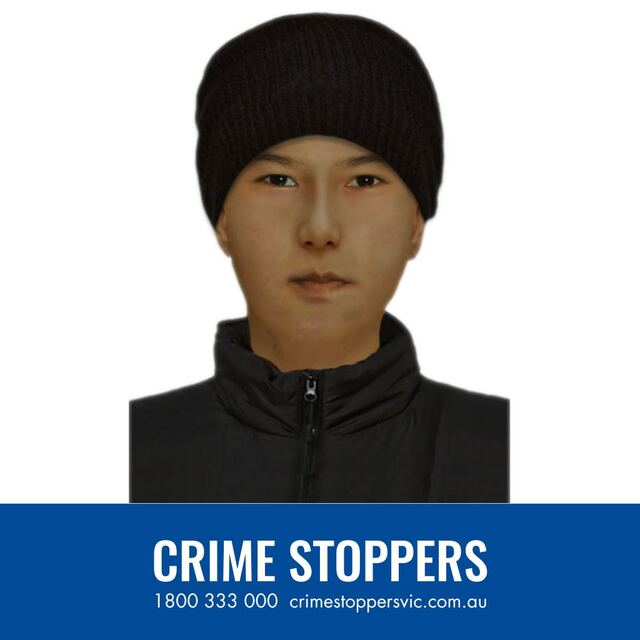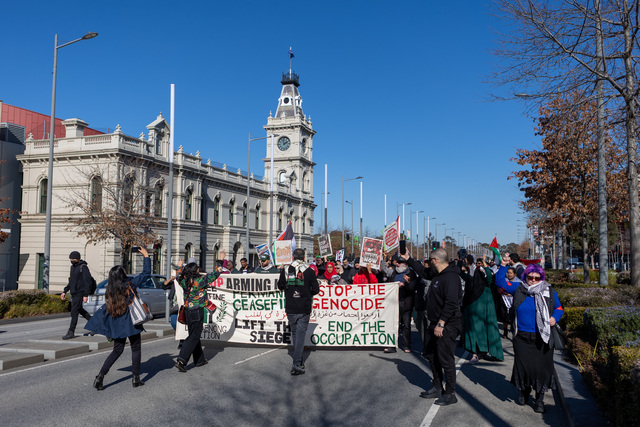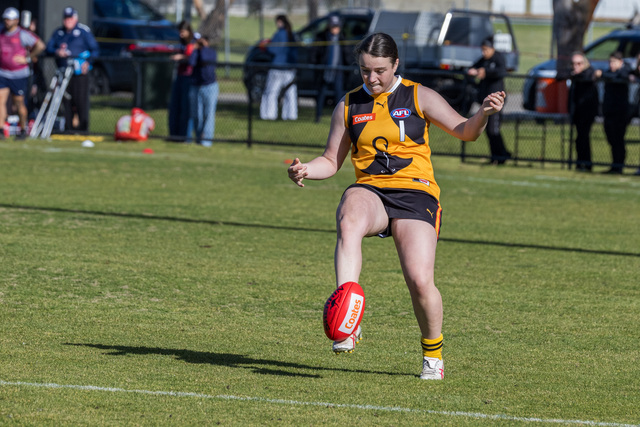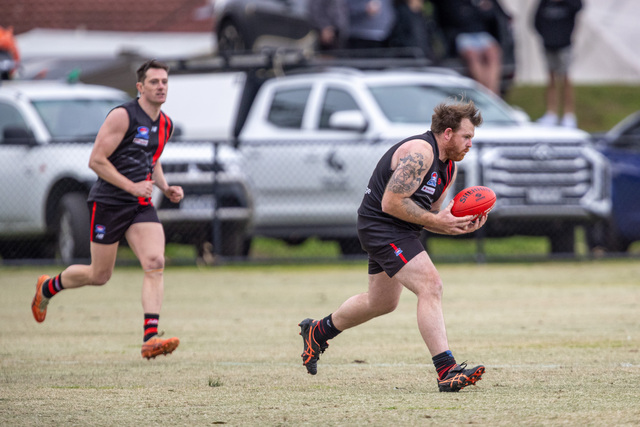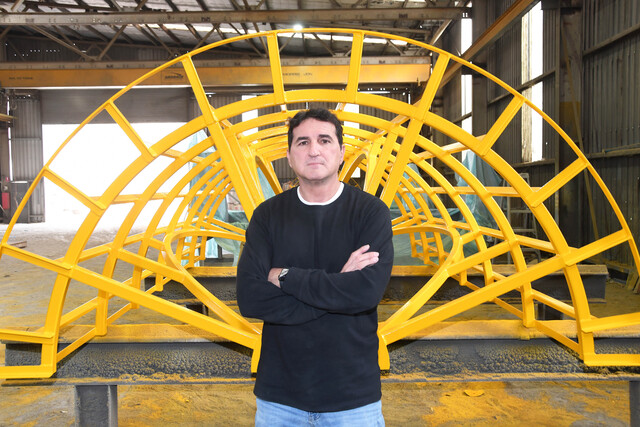 Former shepherd Alex Ujka has found a new life after escaping from Albania’s repressive communist regime.
Former shepherd Alex Ujka has found a new life after escaping from Albania’s repressive communist regime. FRESH from an indiscriminate beating, a weakened Alex Ujka ate his prison meal mixed with blood dripping uncontrollably from his own nose.
Eleven months in a Yugoslavian prison was Mr Ujka’s sentence for wanting to be free – and meal-time bashings were a common, if not daily, routine.
Flash forward almost 17 years, and the 39-year-old Albanian-born shepherd is now a top-level interpreter and unsung community hero living in Dandenong with a loving wife and daughter.
Mr Ujka is an active member of the Lions Club of Dandenong and a voluntary interpreter for the Dandenong Albanian community.
He says life has never been better since he escaped Albania’s communist regime in 1990.
Mr Ujka was the youngest of five children living in Albania with his parents.
The intense level of persecution carried out by the Albanian government against its people meant acts such as political dissent – even declaring a bread roll stale or tasteless – could lead to a life in prison.
In the Ujka family’s case, Alex’s father, a builder, took it upon himself to build a home for his family – against the government’s will.
“My dad was bashed so many times by the police, and they even came and demolished our house,” Mr Ujka said.
“We didn’t have any rights in that system, so I escaped from the country after finishing two years in the Albanian army.”
Mr Ujka fled to Yugoslavia for protection – but the Yugoslavian Government’s fear of espionage saw him sent to a concentration camp for 30 days followed by an 11-month sentence in a dingy prison cell.
“They questioned me and wanted to make sure I was not spying on them,” he said of the Yugoslavian authorities.
The 11 months of imprisonment was pure hell for Mr Ujka. “I ate the food they gave me mixed with my own blood.
“I was bleeding from the nose because they (the prison guards) would constantly bash me with batons. But I had no choice, otherwise they said they would take me back to the border and I might be hanged by the Albanian Government.”
Fortunately for Mr Ujka, the United Nations intervened, drawn to the region as political tensions swelled.
“They gave us a choice to apply for the United States, Canada, or Australia,” he said.
“I just wanted to run away as far as I could from my country, and I knew nothing about the countries.”
Mr Ujka blamed communist schooling for his lack of understanding.
“Our government told us very little about countries it didn’t want us to know much about,” he said. “They only used to teach us about other communist countries.
“We were told in geography classes only that Australia had plenty of sheep, and that you would ride horses around to look after cows and sheep.”
Being a shepherd, the prospect of a big sheep population convinced Mr Ujka that Australia was the place for him. But when he arrived in 1991, there were no sheep in sight, rather a world beyond his imagination.
He spent six months in a hostel in Springvale before renting a house with two other Albanian refugees in Scott Street, Dandenong.
He worked in Bayswater as an upholsterer. It’s a job many may dismiss as uninteresting, but for Mr Ujka, it was an awe-inspiring moment, one that planted the seeds for his love affair with his new nation.
He developed a desire to help refugees learn English – despite having only learned it himself since arriving in Australia.
Mr Ujka completed an interpreter’s course and soon began working with several interpreting agencies.
One of Mr Ujka’s first tasks was also one of the most challenging – working with an influx of Kosovan refugees in 1997/98 as they sought asylum in Australia and, in particular, Adelaide.
Mr Ujka spent four years in the City of Churches before returning to Dandenong where he now lives in Hammond Road.
He describes his career highlight as “saving a life”: that of an Albanian man on trialfor murder in the Federal Court of Australia , whose first interpreter had provided misleading translations.
“The other interpreter spoke Albanian from Macedonia, not Albania, but the man on trial was from Albania.
“The interpreter spoke a different dialect and was providing the wrong information to the man, and to the court.”
Mr Ujka was called in and his accurate translation proved the man had been wrongly accused.
The Federal Court judge commended the Dandenong resident’s work. “He said he would make sure they got me as the interpreter for all Albanians in the future.”
After escaping from his own government, braving his way through the UN’s refugee program and learning a new language, all while worrying about his family in Albania, Mr Ujka has not taken for granted what Australia has given him.
His voluntary fundraising with the Lions Club and interpreting on call for members of the Albanian community, shows Mr Ujka’s genuine desire to help others.
“I am basically a person who likes to help and give,” he said.
“I have come from nothing and, now that I have got something, I would like to give back.
“I think life is about more than just taking.”

